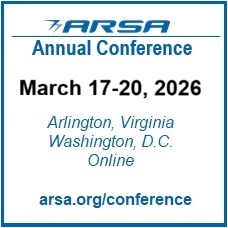ARSA Helps CNBC Illustrate Career Development “Challenge”
On Feb. 14, CNBC published a 12 minute special addressing the workforce and career development challenges facing the maintenance industry. ARSA Executive Director Sarah MacLeod participated, lending a voice to the data and analysis provided behind the scenes by the association to producers constructing the video.
The piece introduced the overall shortage of maintenance professionals before covering certification, recruitment, retention, and supply issues. MacLeod featured throughout the video, which also included interviews with GE Aerospace and Aviation High School in Queens, New York.
CNBC – Airplane Maintenance Worker Shortage
“Aerospace is just a fascinating industry that is only a small portion driven by airlines,” MacLeod explained. CNBC’s analysis provided a useful overview of the industry’s employers and their employment opportunities. “Eighty percent of the maintenance facilities [ARSA represents] are small businesses.”
Those small businesses compete in a complex market for talent. Many rely on word of mouth recruitment or build local partnerships but must face industry-wide limitations in available personnel. ARSA’s advocacy, training, and resources, particularly its championing of FAA grants for technician development, offer opportunities for the many independent repair stations that cannot invest in robust human capital outreach.
“The entire world is going to feel this workforce shortage,” MacLeod said. “You already can’t get your houses built. I think that aerospace can actually lead the recovery…because we do need, and want, and can train, and have trained the elite when it comes to these blue collar jobs. I’ve talked to a lot of people in the industry for 30 years that [say] their damn children can’t change a tire. For our folks in the repair station environment is you having technical skills – knowing a screwdriver from a wrench – and a desire to learn. Period.”
Looking ahead, CNBC’s reporting acknowledged the value of training and career development. Aviation personnel, and the infrastructure supporting them, must adapt to increasing workloads while harnessing and managing new technology. As MacLeod said in her statement closing the piece, failure to do so will leave aircraft – and the world – stuck on the ground.
To watch the complete piece via CNBC’s YouTube channel, click here.
To see one of ARSA’s programs supporting career development – by providing for tuition reductions to Purdue University Global Online – click here.








